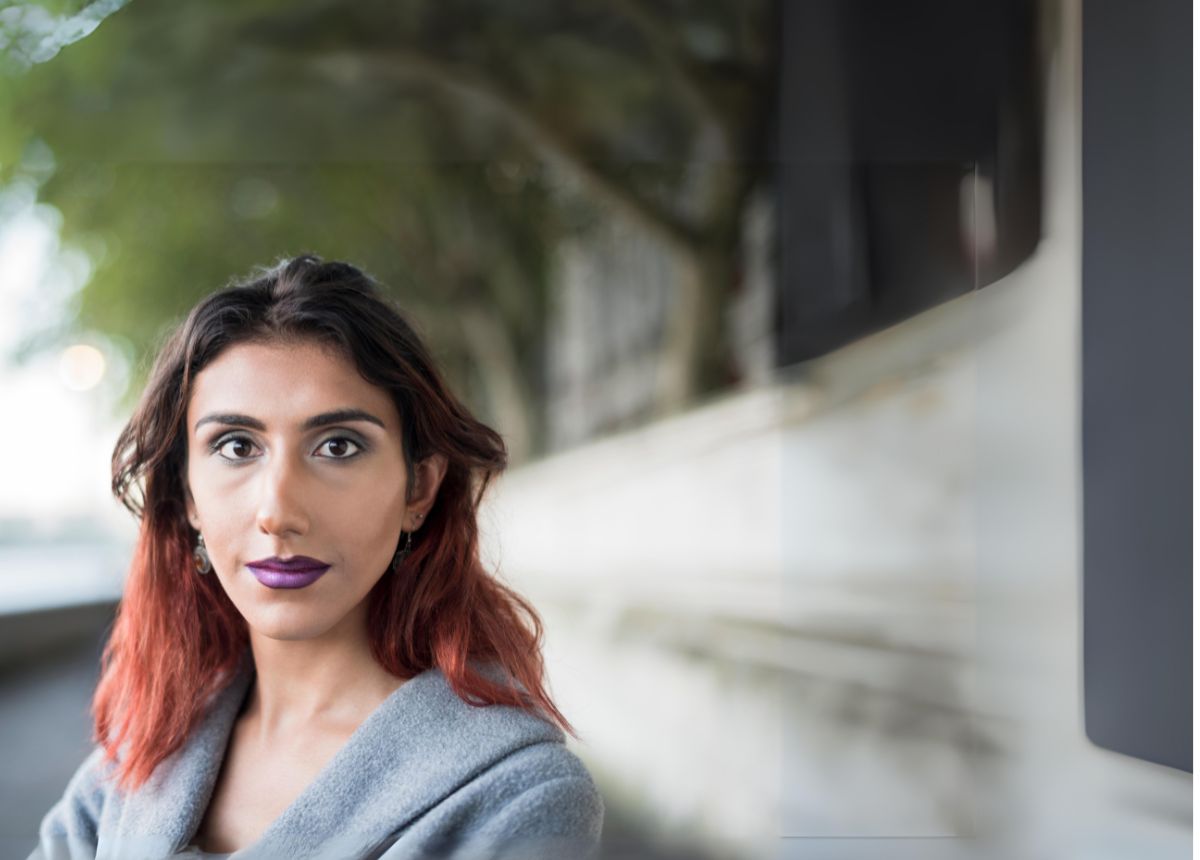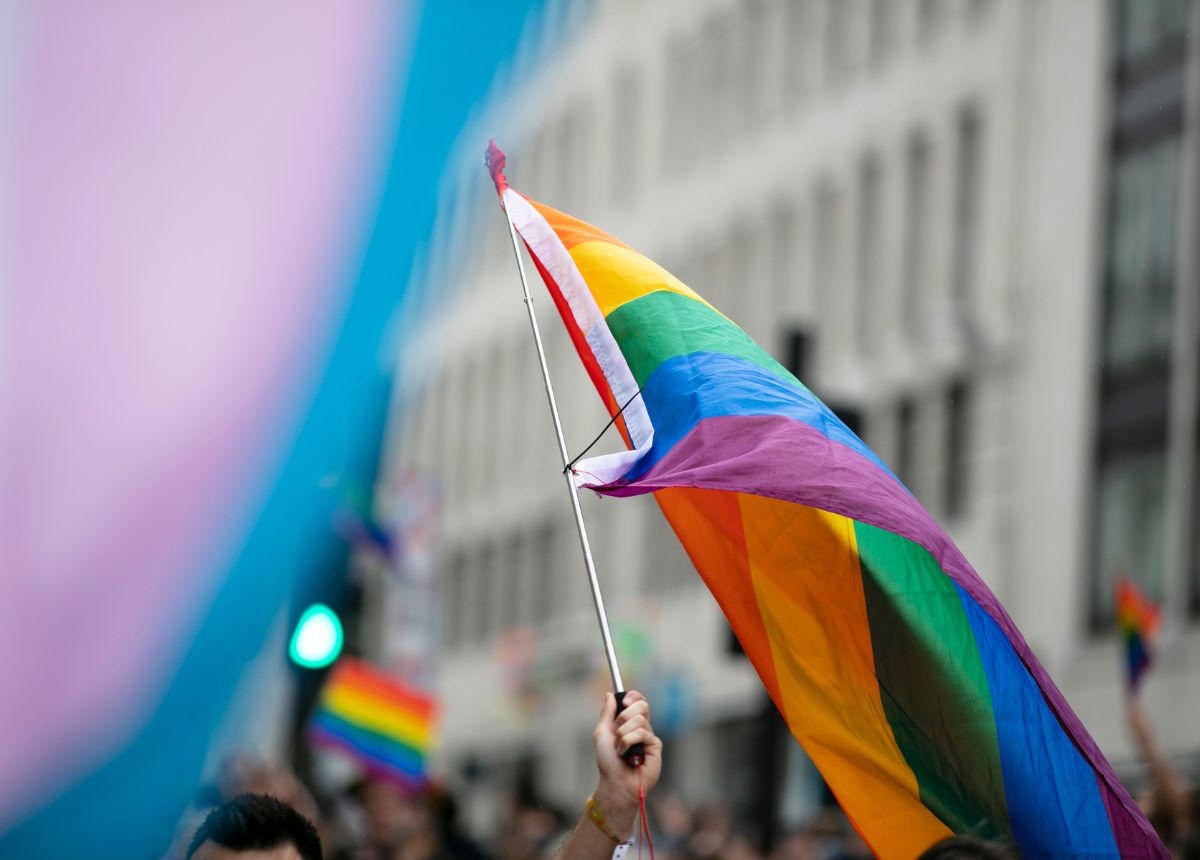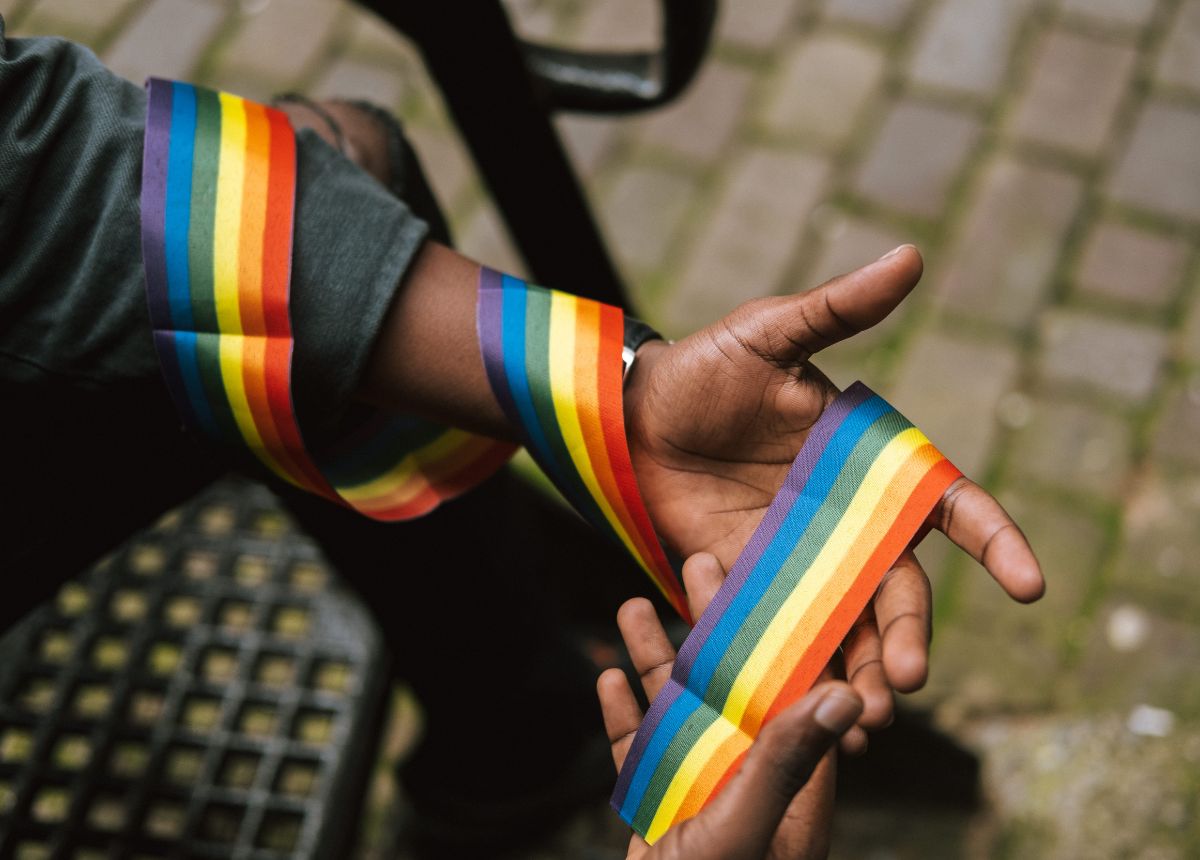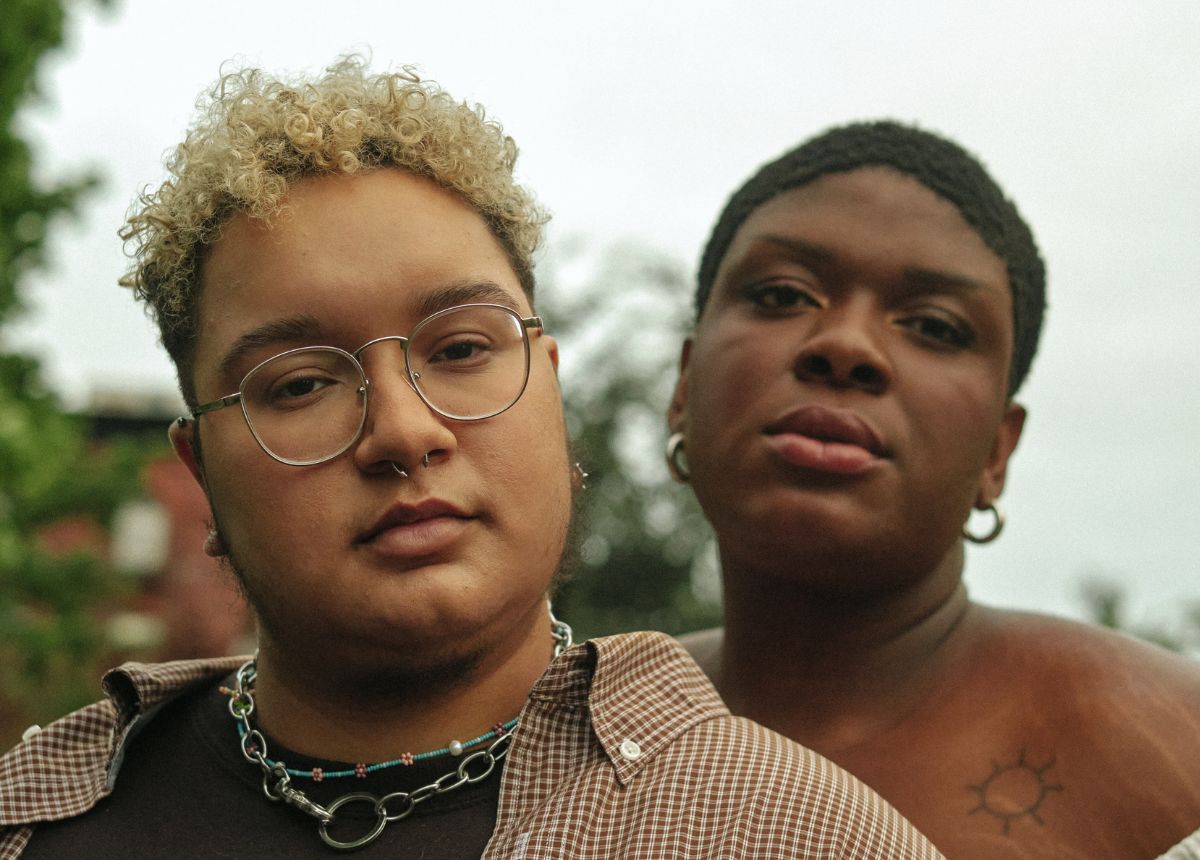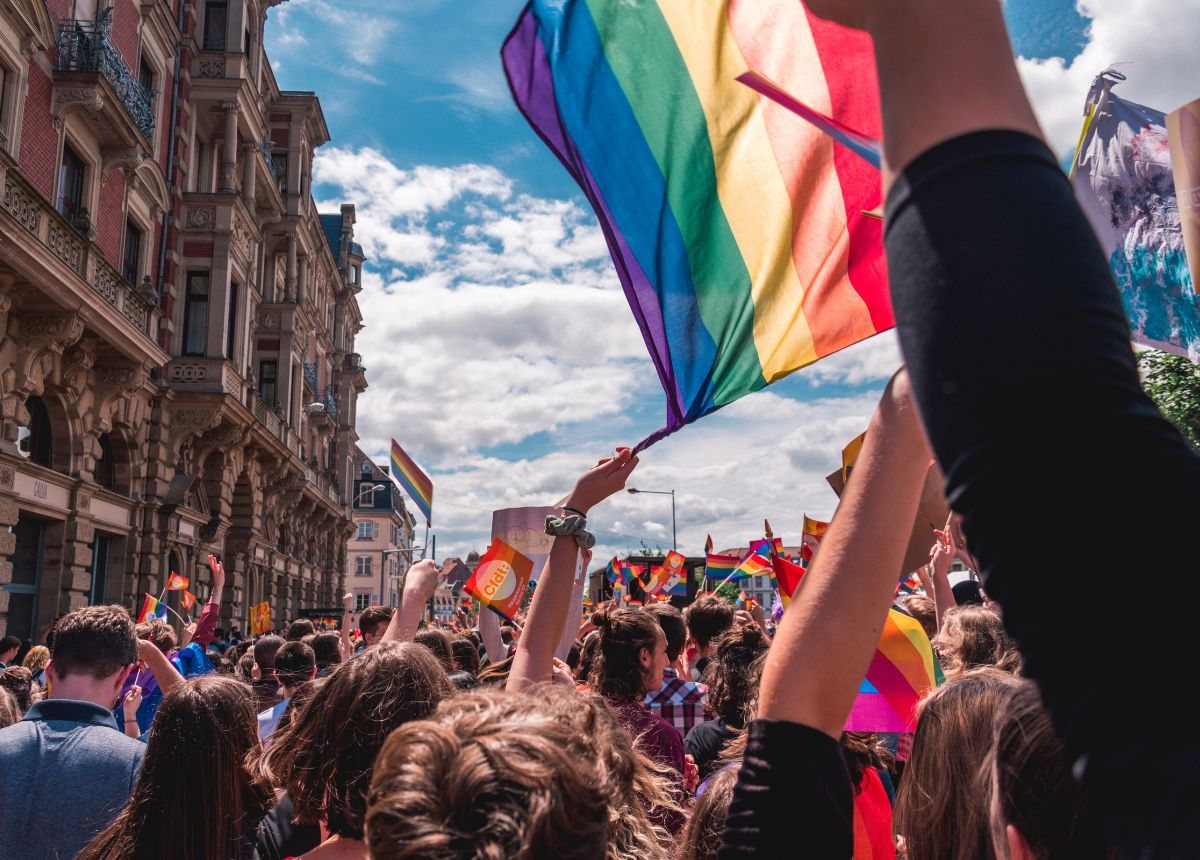A guide on how to submit your appeal online

If you have received a refusal letter from the Home Office, and you do not have a lawyer and need to submit your appeal within 14 days of a Home Office refusal decision, you can do this online yourself. Together with Right to Remain, we have created a detailed step-by-step guide to submitting your appeal online.
It is important you do not miss this deadline.
You do not need to include any legal arguments or evidence when you submit your appeal, you can do this later once you have found legal representation or received legal advice.
If you missed the deadline and your appeal is late, please seek legal advice before submitting your appeal online.
Visit the government website to learn about how to submit an appeal online.
We are devastated to witness the passage of the cruel Rwanda bill
We are devastated to witness the passage of the cruel Rwanda bill into law by this government. By pushing forward with this legislation, this government has signed off a policy to banish and abandon people who fled to the UK, seeking to find safety here.
Although the UK's highest court ruled that Rwanda is not safe, this government has remained determined to pass a cruel bill and fly people who have already been tortured and escaped death thousands of miles away to a place where they have no connections and where they will be in danger.
For two years since this government’s inhumane plan was first announced, we have repeatedly warned that Rwanda is a country where LGBTQI+ people are subjected to discrimination, violence and abuse.
The UK government’s own website states that LGBT people in Rwanda are abused, including by local authorities. The situation for LGBTQI+ people in Rwanda is so poor that people have sought asylum in the UK based on their sexual orientation.
There is widespread evidence of ill-treatment and abuse faced by LGBTQI+ people in Rwanda. It is a disgrace that this government is willing to send LGBTQI+ people, who have fled life-threatening situations in their home countries and sought safety and protection in the UK, to another country where they would be in further danger.
Leila Zadeh, Executive Director at Rainbow Migration, said: It is dystopian that this government has passed a law that ignores facts and declares contrary to evidence that Rwanda is a safe country. Most of us welcome people who have fled unimaginable horrors, but instead this government is intent on sending them to danger.”
Innocent, a gay man from Rwanda, who came to the UK 20 years ago, said: “Having experienced the discrimination faced by LGBTQI+ people – or those perceived to be sexual minorities in Rwanda – I am shocked that the UK would deport people from our community there”.
Rwandan LGBTQI+ activists have also warned: “We don’t understand how the UK government would send LGBTQI+ people here knowing that they will face discrimination. ... LGBTQI+ people face stigmatisation and abuse in Rwanda every day, and there are many cultural and religious factors which fuel hatred against LGBTQI+ people in Rwandan society.”
A gay man from Guatemala, who was recently granted refugee status, said: “It feels like they don’t consider you human enough to provide you with a home, to give you a place to live. It feels like you are this problem that nobody wants to deal with, so you get to be tossed around from country to country, which gives you such a hopelessness feeling.”
Rainbow Migration will continue working tirelessly to ensure that LGBTQI+ people seeking safety here are properly supported, able to settle and can challenge each and every attempt to send them to an unknown country, where they don’t have any connections or support.
We also call on this government to get in line with public sentiment, to ditch this heartless Rwanda plan and other cruel policies, and instead create a more humane and compassionate asylum system so that people can rebuild their lives in safety.
Believe it or not: Call for papers
Imagine being forced to ‘prove’ your sexual orientation or gender identity to strangers who might hold preconceived notions about who you are. For LGBTQI+ people seeking asylum, this is often the case. Despite calls for change, credibility assessments of LGBTQI+ people is often based on stereotypical assumptions and expectations of universal characteristics or life experiences among all LGBTQI+ people seeking asylum, such as ‘emotional journeys’, shame, and other negative feelings about themselves.
The Striking Sirens Coalition is a group of practitioners and academics in the field of SOGIESC (Sexual orientation, gender identity and expression, and sex characteristics). We, at Rainbow Migration, are working with the coalition to organise a conference to find solutions to the issues which are commonly experienced within the credibility assessment of sexual orientation and gender identity asylum claims and to renew momentum to update UNHCR guidance about it.
The coalition are now inviting proposals for papers and workshops on, but not limited to:
- Solutions to improve the credibility assessment of SOGIESC asylum claims without defaulting to models or stereotypes.
- The impact of current credibility assessments on LGBTQI+ people who have sought asylum.
You can send your proposal of max. 250 words for a paper or workshop to strikingsirens@coc.nl before 10 May 2024.
Download full call for proposals with more information
RAF Wethersfield: Unsafe for LGBTQI+ people
At Rainbow Migration we are increasingly concerned about the safety of LGBTQI+ people in inappropriate and unsafe shared asylum accommodation.
In recent months, we have documented many concerns about room-sharing for LGBTQI+ people seeking asylum and we have seen a sharp increase in the number of people accessing our services because they have experienced homophobic, biphobic or transphobic harassment and verbal, physical and sexual abuse.
RAF Wethersfield, a former military site located Wethersfield is one of the unsafe facilities that this government is using to place people seeking asylum and together with other organisations, like Helen Bamber Foundation and Care 4 Calais, we have recently submitted a comprehensive report to Parliament to shed light on the dangers of using this site. We have highlighted the specific dangers of housing LGBTQI+ people seeking safety here in them.
Outlined below are the critical issues we have raised, but for more in-depth information about the issues and our submission, please download our Evidence to the Secondary Legislation Scrutiny Committee.
- Housing people in prison-like conditions is cruel and risks further traumatising LGBTQI+ people who have had to flee unimaginable dangers and life-threatening situations.
- Many LGBTQI+ people seeking safety here have been rejected by their families back home and may have limited support networks in the UK. Therefore, the geographic isolation is particularly hard for LGBTQI+ people, who need to keep in touch with or seek support from LGBTQI+ community groups or support networks.
- The dangers of room sharing for LGBTQI+ people: In shared accommodation, LGBTQI+ people are often subject to abuse and mistreatment, which can further traumatise people who are seeking safety and protection. We have found homophobic, biphobic and transphobic harassment to be systemic in shared asylum accommodation.
- We are also concerned that neither the Home Office nor accommodation providers are adequately recognising that LGBTQI+ people are vulnerable or at risk of harm in shared rooms, nor providing suitable accommodation as soon as they become aware of the fact.
This government should ensure LGBTQI+ people are accommodated suitably and safeguarded from harm.
Read the full Evidence to the Secondary Legislation Scrutiny Committee
The Scrutiny Committee has now published its response to our joint submission. It has called on the Government to protect the health, safety and wellbeing of staff and residents at large sites like RAF Wethersfield, and especially those residents who are vulnerable. Their response also specifically draws upon our submission in criticising the unsuitability of RAF Wethersfield for the accommodation of asylum seekers due to its ‘isolated location, prison like surroundings and large number of residents’.
In their reply to that report, the Home Office has said that they screen all people seeking asylum to ‘protect vulnerable individuals and ensure they are placed in suitable accommodation’ and that vulnerable individuals, or those with ‘any specific needs’ would not be placed at RAF sites. We will continue to advocate for no LGBTQI+ people to be held in unsafe and unsuitable sites including RAF Wethersfield.
Get help from us if you get a call
For two years since this government’s cruel Rwanda plan was first announced, we have repeatedly warned that it is a country where LGBTQI+ people are subjected to discrimination, violence, and abuse.
We have now received reports that the Home Office are calling people to offer ‘voluntary departure’ to Rwanda. If you have received one of those calls or if you receive one in the future, please be aware that you DO NOT have to say yes.
If you are LGBTQI+ and receive a call, please contact us immediately as well by filling in this form with us much detail as possible. We will respond as soon as possible.
If you get a call we recommend to:
- NOT respond until you have legal advice
- Ask the Home Office to send the offer to you in writing
- Find legal representation
If you are LGBTQI+ and receive a call, please contact us immediately as well by filling in this form with us much detail as possible. We will respond as soon as possible.
Useful links to find legal advice and representation:
- If you need help finding a lawyer you can check out our list
- You can also find a lawyer o the Law Society website
- The Adviser Finder allows you to search for an OISC regulated organisation based on location
Could you be our next Legal Officer?
***THIS RECRUITMENT HAS NOW CLOSED***
Are you a dedicated legal professional looking to make a real difference in LGBTQI+ asylum? Join our team!
We are looking for a qualified solicitor or barrister with valid practising certificate, or already accredited to Level 3 OISC, with two years’ experience in providing advice and representation in asylum including working in legal aid.
You will be responsible for the day-to-day delivery of the legal advice service. Under the guidance of our Legal Service Manager, you will also build capacity amongst legal representatives by designing and delivering training, giving second tier advice and developing and coordinating a network of practitioners working in this area. You will use the knowledge you gain in this role to help deliver our policy work, such as inputting into policy papers and meeting with partner organisations when required.
We will also consider applications from people who do not want to do the policy elements of the job, but to instead focus on first and second tier advice. Please mention in your covering letter if you are applying for this option.
This is a unique opportunity to build on your experience as a lawyer or caseworker to improve representation across the sector and create change in government policy and practice. You will be supported to develop as a specialist lawyer and in your policy skills.
Responsibilities will include:
- Deliver one-off advice to adult LGBTQI+ people seeking asylum and work with colleagues to refer them to quality legal aid and pro bono lawyers
- Provide casework assistance e.g. helping to prepare witness statements, making referrals to other specialist organisations and taking other urgent steps (whilst not representing service users or maintaining a caseload)
- Provide occasional advice (within competence) on other issues affecting asylum and partnership service users such as asylum support, legal aid, trafficking, family reunion or community care
- Deliver second tier advice to the legal representatives of LGBTQI+ people seeking asylum and other charities and professionals
- Work with the Legal Manager to design and deliver training to lawyers, NGOs and other professionals
- Write blogs and articles on asylum and immigration policy and legislation as they apply to LGBTQI+ people
- Contribute to policy and briefing papers
The Legal Officer will not be providing direct legal representation of service users. However, the role includes substantive advice and casework within the scope of legal support and referrals for our service users, as well as merits testing and second tier advice.
Our vision is that LGBTQI+ people can settle in the UK and lead fulfilling lives. Our values are:
- Safety: We believe everyone should be safe from persecution and safe to be themselves. We strive to create a safe workplace culture, and we place importance on the wellbeing of everyone involved with Rainbow Migration.
- Integrity: We are thorough and honest in everything we do, and we take responsibility for our actions. We want to be accountable to our communities and those who support us.
- Belonging: We welcome and include all LGBTQI+ people, and we celebrate and value their range of experience in terms of gender, religion, race, age, disability status and class. We try to remove obstacles to participation, champion equality and promote a sense of family or home through our services.
- Respect: We believe that every person is equal and deserves the same level of courtesy, care, and attention. We respect the rights, wishes and feelings of our service users, and campaign for their rights to be respected as they go through the asylum and immigration system.
At Rainbow Migration, we don’t just accept difference – we celebrate it, we support it, and we thrive on it. We’re proud to be an equal opportunity employer and we value diversity. We do not discriminate on the basis of race, religion, colour, national origin, gender, gender identity, sexual orientation, age, marital status, or disability status. We consider all qualified applicants, consistent with any legal requirements.
We welcome applications from candidates with lived experience of going through the UK asylum or immigration system or who have been subject to immigration control. We offer a guaranteed interview scheme for anyone considered as disabled under the Equality Act 2010 if they meet the necessary criteria in the person specification.
Owing to the nature of the work, the successful applicant will be required at the point of conditional job offer to disclose all spent and unspent criminal records and subsequently to undergo an enhanced DBS check.
Contract Type: Permanent.
Hours: Full-time (35 hours per week). Working part-time or job-sharing will be considered. Occasional work in the evenings and at weekends may be required but with plenty of notice. Rainbow Migration encourages staff to maintain a good work life balance and has a TOIL system in place.
Salary: Starting at £40,175 with effect from 1 April 2024, with potential annual step increases up to £44,868 (pro-rata for part-time employees), plus statutory employer’s pension contribution. In addition to an annual step increase, the trustees consider giving a separate inflationary increase every April.
Location: Rainbow Migration’s offices are based in Borough, central London. This role will have an office-based contract but the postholder can choose to work from home for part of the week in agreement with their line manager and Executive Director. You must be available to work from our offices in London when necessary. The successful candidate would also be welcome to work from the office full-time if that is their preference. There might also be occasional travel outside London with plenty of notice. At the time of posting this advert, none of our staff are going into the office every day. Please contact us if you have any questions.
Annual Leave: 25 days per year rising after 24 months by 1 day after each year of service to maximum of 28 days per year (pro rata if working part-time).
Wellbeing: We offer up to two days of wellbeing leave to be taken at short notice in each calendar year. One-to-one clinical supervision is also available for this role.
How to apply:
Closing date: Applications will be reviewed on a rolling basis, but the first consideration of received applications will take place on 18 March 2024.
Interview date: Interviews will be scheduled on an ongoing basis in response to applications received.
Please read the job description and person specification. If you have any questions about the role or would like to find out more before applying, then you can contact the line manager via recruitment@rainbowmigration.org.uk.
Please send:
- Your CV
- A written statement (max 1,000 words). Instead of a written statement you may submit your statement by video or audio recording (max 8 minutes)
- Optional: a completed monitoring form
to recruitment@rainbowmigration.org.uk.
In your statement, please:
- Give examples of how you meet the person specification. In addition to what is on your CV, we want to hear about any relevant skills and experience that demonstrate how you meet the necessary criteria for the role, and if you meet any of the advantageous criteria. Skills and experience could be from training, volunteering, interests or life experience
- Confirm if you wish to be considered under the guaranteed interview scheme for anyone considered as disabled under the Equality Act 2010 (physical or mental impairment that has a ‘substantial’ and ‘long-term’ effect on your ability to do normal daily activities)
- State how many hours a week you wish to work and if you have a preferred pattern, or if you are applying as part of a job-share
- If you do not want to do the policy elements of the job and instead focus on first and second tier advice, please mention this.
By submitting an application, you:
1. Confirm that you have the right to work in the UK and will produce the necessary documentation if you are offered this post.
2. Declare that to the best of your knowledge and belief, the information provided with your application is true and correct and that you understand that any false information or statement given will justify the dismissal from Rainbow Migration if appointed.
3. Accept that, if successful, you will be required to disclose all spent and unspent criminal records at the point of conditional job and subsequently to undergo an enhanced DBS (Disclosure and Barring Service) check.
We are proud to be a member of the Experts by Experience Employment Network, which aims to create a charitable sector that is led by people with lived experience of the asylum and immigration system. As part of this network, we challenge the one-size-fits-all approach in our employment practices, and respect personal circumstances and needs of people with lived experience. Please feel free to use information and resources which may help in preparing your job application
Privacy notice
If you apply for this role, the information you provide will be processed according to Rainbow Migration's privacy policy. Rainbow Migration will not share your information with any third parties unless part of the recruitment process or are legally required to do so. By applying, you are permitting Rainbow Migration to access and use the information for recruitment purposes. Rainbow Migration will store your data for 12 months after the conclusion of the recruitment campaign. Monitoring information is kept separately and is pseudonymised to avoid identification of applicants. It is amalgamated for statistical purposes and the original data is then deleted after six months.
The colonial past that shapes the present asylum process for LGBTQI+ people
Imagine escaping from the place you grew up in, where you have your community, your friends, your life, because you are LGBTQI+ or someone finds out that you are, and suddenly that place is no longer safe for you.
Many LGBTQI+ people across the world find themselves in that situation, and some come to the UK to rebuild their lives in safety here.

However, the UK asylum system can be very challenging to navigate, particularly for LGBTQI+ people.
LGBTQI+ people seeking asylum are required to “prove” their sexual orientation or gender identity and provide evidence of it, which is a very difficult thing to do.
First of all, when you’re fleeing for your life, the last thing you think about is collecting evidence of your sexual orientation or gender identity – like a letter from an ex.
And then once they’re here, not all LGBTQI+ people want to go to LGBTQI+ clubs, groups, events or be on dating apps, which could provide some sort of evidence; everyone lives their queerness in different ways.
Many people don’t even know that they have the right to claim asylum based on their sexual orientation or gender identity when they get here, so wouldn’t think of collecting evidence.
Once they claim asylum, many LGBTQI+ people only have their own account of their sexual orientation or gender identity to provide as evidence. And this account doesn’t always meet the Western-centric expectations of an “emotional journey” or that sexual orientation is a fixed identity. In fact, many LGBTQI+ people have been refused asylum in the UK because of these expectations by the Home Office.

Research shows that this expected narrative of self-realisation is particularly difficult to meet for people from different cultural backgrounds. As mentioned in our report Still Falling Short, “Where a person is not imbued in the Western context of self-focus (as opposed to focus on family or communal duty as core founding features of identity), expectations of emotional journeys will often be culturally inappropriate”.
To make things worse, the Nationality and Borders Act passed by this government in 2022 introduced an even higher standard of proof, which means that LGBTQI+ people now have to provide even more evidence to prove their sexual orientation or gender identity. And that means that more LGBTQI+ people could be returned to countries where their lives are at risk.
Some people have argued that the imposition of these narrowly predefined categories and expectations when it comes to people seeking asylum on the basis of their sexual orientation or gender identity closely resemble those rigid categories imposed during the British colonial era and could therefore be seen as a legacy of colonialism.
In that sense, Alex Powell argues that Western countries like the UK are recreating colonial dynamics or enforcing conformity to “westernised” social scripts, and that “certain pro-LGBT+ policies do not take account of intersectional or culturally specific manifestation of sexual difference”.
During the 1800s, the British empire imposed strict laws that criminalised same-sex relations or declared trans people to be “unnatural” on colonised countries in Africa and Asia, often dismantling decades or centuries of complex local cultural attitudes towards sexuality and gender.
As the UN’s Independent Expert on protection against violence and discrimination based on sexual orientation and gender identity (IE SOGI) report on colonialism and sexual orientation and gender identity states, “The colonising nations established a cultural, political and legal system based on the reproduction-oriented cisheteronormative family, with no room for any gender or sexuality outside of these norms. Homophobia, biphobia and transphobia were ideas introduced by missionaries and colonial administrators and later copied by post-colonial leaders. In fact, sexual diversity was – for the first time in these territories – criminalised by the imposition of discriminatory laws during colonial rule. These legislations were maintained once colonial rule ended and many of them persist to date.”
Just recently, Kenyan transgender activist and feminist Arya Jeipea Karijo wrote about those queer pasts that existed in countries where many LGBTQI+ people flee from today. She stressed how “in African pasts what is now known as queer was crucial and in some cases “life saving” for our ancestors”. In present-day Uganda, trans people were referred to as Mudoko Dauku. In Ethiopia, the word wändarwäräd (loosely translated to male female) was a word for acceptance and inclusion. And in Kenya and Tanzania, some women who married other women were known as mokamööna.

The experiences of LGBTQI+ people seeking safety in the UK today are a stark reminder of the need for a more inclusive and culturally sensitive approach to asylum claims based on sexual orientation or gender identity. It is essential to recognise and respect the diverse ways in which individuals live or express their queerness and to ensure that the asylum system does not recreate colonial structures, perpetuate discrimination or put lives at risk.
As we reflect on the historical and current challenges faced by LGBTQI+ people, it is clear that there is an urgent need to create a kinder and more compassionate asylum system. It starts by lowering the standard of proof so that the government is not asking for unreasonably high levels of evidence for something that is already inherently impossible to prove. And it continues by recognising this country’s colonial past and our responsibility to offer safety to those fleeing from the repercussions of our past actions. The disbanding of the Windrush team is a sign that this government is turning a blind eye to the impact of its colonial legacy and refusing to learn lessons.
Rwanda Bill returning to Parliament
Ahead of the Rwanda Bill returning to Parliament this week, together with JCWI we have produced a submission to the Joint Committee on Human Rights on the Safety of Rwanda Bill.
We strongly urge the Committee to recommend that MPs reject the safety of Rwanda Bill entirely, as it would put lives at risk and violate the UK’s constitutional, international and human rights law obligations.
Among other issues, we have raised concerns about the safety of LGBTQI+ people seeking asylum if they are sent to Rwanda.
Innocent, a gay man from Rwanda who came to the UK 20 years ago, said: “Having experienced the discrimination faced by LGBTQ+ people - or those perceived to be sexual minorities in Rwanda - I am shocked that the UK would deport people from our community there.”
Innocent also said: “On 15 November 2023, I was delighted to learn that the UK’s highest court had ruled that Rwanda was not a safe country to which the government could send people seeking asylum to. The LGBTQIA+ community in Rwanda was ecstatic, we were glad that LGBTQIA+ people seeking asylum were not going to be subjected to the suffering that we have endured and that some of us still living in Rwanda continue to endure.
However, our sense of happiness and relief was quickly diminished when we learned that the British government is prepared to do everything in its power to send people seeking asylum to Rwanda.”
What can you do?
Email your MP to call on them to vote against this cruel bill
Read our full submission to the Joint Committee on Human Rights on the Safety of Rwanda Bill
Stop LGBTQI+ people being sent back to India and Georgia
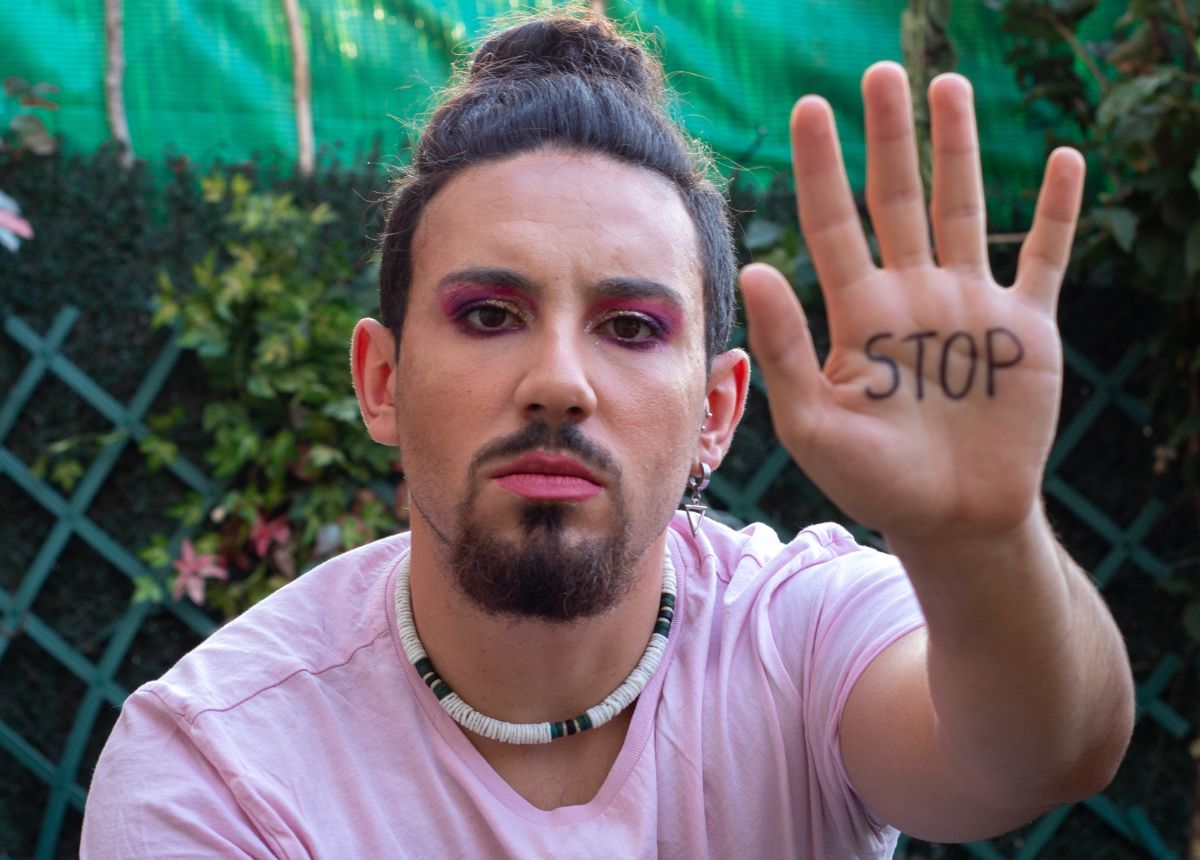
This week our government is quietly amending legislation so that people from India and Georgia will be unable to have asylum or human rights claims considered in the UK.
Instead, this government will try to immediately return them to those countries without a proper assessment of whether it is safe for them. But these countries are not safe for LGBTQI+ people. Their lives will be at risk if this change is made.
There is evidence of widespread human rights abuses against LGBTQI+ people in both countries. And as recently as last month, Noah, a gay man who fled persecution in Georgia was granted asylum here.
Noah was physically attacked by family members, forced to stay in a hospital for people with mental illnesses, and had an exorcism performed on him at church. His partner was attacked too, but the police in Georgia would not protect them.
You cannot live openly as a gay man in Georgia, or feel protected. If they hear that you are gay, they will kill you.
Noah, gay man from Georgia
Noah was extremely fearful of being returned to Georgia, he said his life would be in danger and he would rather take his own life than go back and face persecution.
Refusing to consider someone’s need for protection because of their nationality is dangerous. Everyone should have the right to seek safety here if they need it, no matter where they come from.
Imagine experiencing violence for being LGBTQI+ in your home country and fleeing to the UK hoping to find safety, only to be told that your country is deemed safe for everyone and you’ll be sent straight back. It’s utterly cruel.
Most of us would welcome LGBTQI+ people who can’t be themselves in other countries and are hoping to rebuild their lives in the UK. They should be welcomed and supported to live safely here, regardless of their country of origin.
If you agree with us, please ask your MP to speak up when this change is debated on 10 January.
Highlights from 2023
As we wrap up 2023 and the year of our 30th anniversary, we wanted to share some of the brighter moments from the last 12 months with you:
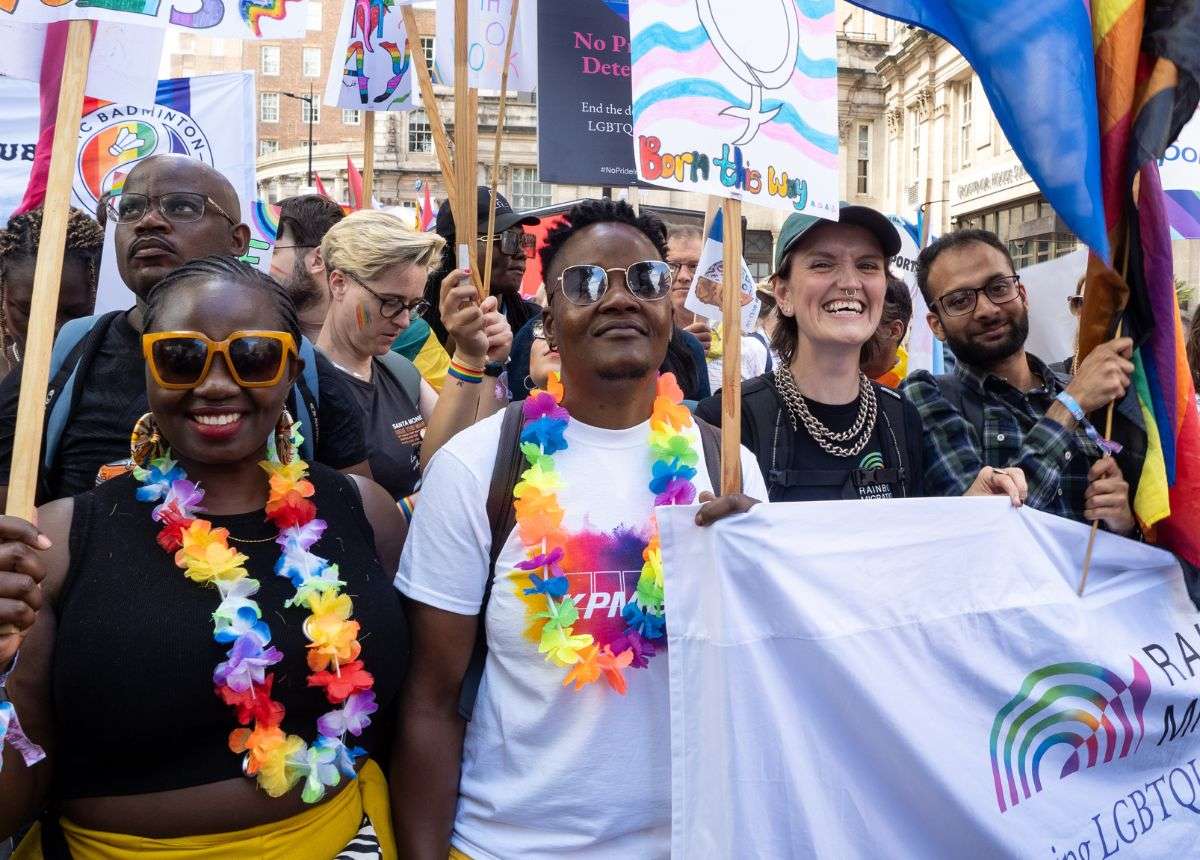
- Over 40 of our service users from over 18 countries have been granted refugee protection in the UK.
- Our wellbeing activities have seen our service users take part in cookery classes, visits to the Science Museum and Richmond Park, a picnic and games day, and a dance class. They told us that it was great to have something exciting to look forward to, and to have days out together, where they can just be themselves without having to think about their asylum claims.
- At least three of our trans service users were relocated to suitable housing in London (e.g. a studio flat for a deaf person; a place with a stairlift for someone who uses a wheelchair), following our support and advocacy.
- The Women and Equalities Committee called on this government to do much better in its treatment of LGBTQI+ people in the asylum system, including never accommodating them on barges. We provided evidence to the Committee on these points last year.
- 100% of service users who evaluated our services said that they had a better understanding of the asylum process after receiving our advice.

